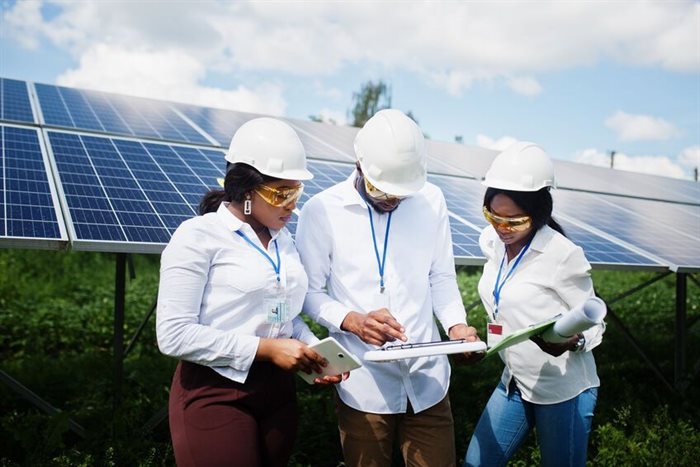Mr Ayuk argues that ESG criteria for financial investments are being weaponised to impose green energy on Africa at a moment when the continent needs to make use of its fossil fuels for the development of its economies. He argues that ESG prioritises the environment at the expense of food, energy security and poverty reduction in Africa. But is that really the case?
ESG performance is the integration of non-financial factors into strategic investment and business decisions of companies, governments, and bond markets. This framework of taking environmental and social responsibility seriously helps stakeholders understand how companies, governments and other entities are managing and mitigating their risks and capitalising on opportunities in these areas.
There are valid criticisms that proponents of ESG must answer, including the lack of effective baseline data; inconsistent measurement; lack of a systematic approach to ESG across different rating agencies and by different governments; greenwashing and social-washing; and ESG fund managers paying too much attention to emissions and insufficient attention to social considerations including labour and human rights issues. ESG has also been criticised as being a dangerous distraction that takes attention away from making the necessary changes needed to address the climate crisis.
Despite these criticisms, it is a stretch to conflate ESG practice and colonialism. Instead, the integration of ESG criteria into corporate and development policy presents opportunities for African economies.
By incorporating considerations that improve social and political stability and supporting progress towards attaining the Sustainable Development Goals (SDGs), companies can reduce the risks they face over the long term. Similar incorporation into government policy presents similar opportunities for African governments, including greater management and mitigation of political and social risks, sustained progress on the attainment of national SDGs, and increased access to capital.
Successful ESG measurement systems on the African continent must be responsive to local contexts and the developmental challenges unique to each of those contexts.
Luciana Echazú and Diego C. Nocetti 16 Jan 2023
Climate, energy, hypocrisy and the danger in mixed messaging
At COP27, delegates from the European Union (EU) threatened to walk out of negotiations in protest of a weak deal, stating that climate goals could very well die there because developing countries were refusing to cooperate.
A week after COP27 and talk of 1.5 degrees being on life support, France reopened coal powerplants in response to the energy crisis they are facing. Germany, perhaps the world’s most significant promoter of decarbonisation, now looks to exit coal only by 2038. More recently, the United Kingdom, one of the key members of the Just Energy Transition Partnership (JET-P), approved coal mining for the first time in 30 years in response to its domestic energy supply challenges. This is worth noting because a key part of the JET-Ps is for countries to gradually reduce and abandon coal as part of their energy mix.
This inconsistency is damaging to the ambitions of a just energy transition. It lends credence to the view that Western countries are trying to hold down the development of Africa and other developing countries through the “climate agenda”. The global pandemic should have taught us the lesson that inconsistency in directions and implementation creates fertile ground for conspiracy and distrust of authority. Should European and developed countries continue along this path of inconsistency, they risk destroying progress made on climate partnerships and agreements.
Policymakers understand that promoting and ensuring energy security is critical for their political futures and their countries’ economic fortunes. European policymakers and global finance institutions need to acknowledge the importance of energy security when engaging with African countries. Failure to do so creates a sense that the pursuit of green energy is something the rich world is content to impose on poorer countries while they hypocritically continue with fossil fuels, which is mutually destructive in the long run.
Using ESG to promote a just energy transition in Africa
Hypocrisy aside, however, the integration of ESG criteria into development policy entails vast opportunities to support the attainment of the SDGs in Africa. The promotion and securing of a just energy transition is one of the areas where this integration can produce significant benefits. The inclusion of sound ESG criteria which prioritise the social wellbeing, security, and stability of African economies, in addition to the promotion of good governance, are crucial for the energy transition's success.
ESG presents an opportunity to address one of the key problems that the global energy transition will bring for Africa, particularly as countries move away from coal. This is well demonstrated in South Africa where worries about job losses from the just transition are a sticking point. Labour unrest is a significant challenge in South Africa, and the risks presented by it (and increased joblessness) for the long-term stability of the economy must be seriously considered in any negotiations.
An African vision of ESG dedicated to the promotion of a just energy transition must place emphasis on minimising job losses and redundant job growth. Additionally, it must place emphasis on the development of new industries in areas impacted by the transition from coal. Doing so will require that all stakeholders in these agreements, particularly governments, prioritise their people.
Another way that ESG integration into development policy can support African countries is through the mechanism of debt for nature swaps. The Paris Agreement commits the world to a net-zero pathway and several agreements also exist for the preservation of biodiversity and wildlife. Debt-for-nature swaps bring these two sets of agreements together, providing an opportunity for African countries to leverage the existence of their natural ecosystems and their value as carbon sinks in exchange for debt forgiveness and support for the preservation of these ecosystems. Nature-based solutions to decarbonisation will be critical to net-zero efforts. Debt-for-nature swaps have significant ESG potential, as they are an environmental policy which addresses national governance challenges around debt sustainability and reduce the social issues that austerity typically produces, while potentially creating employment.
Conclusion
ESG attainment is an evolving process, requiring greater input and involvement in its development from Africa and the developing world to ensure that the policies developed do not miss the mark and are responsive to the needs and priorities of relevant populations. The increasing global pressure for improved ESG performance can therefore support and promote sustainable development and effectively address accusations such as Mr Ayuk’s.
Dismissing ESG as a ‘colonial imposition’ disqualifies the opportunities it offers for sustainable development. The idea that unabated fossil fuels are the only channel to address African countries’ energy and developmental challenge is too convenient for vested interests and is insufficient to produce broad-based development.
This article was originally published by Good Governance Africa.


























